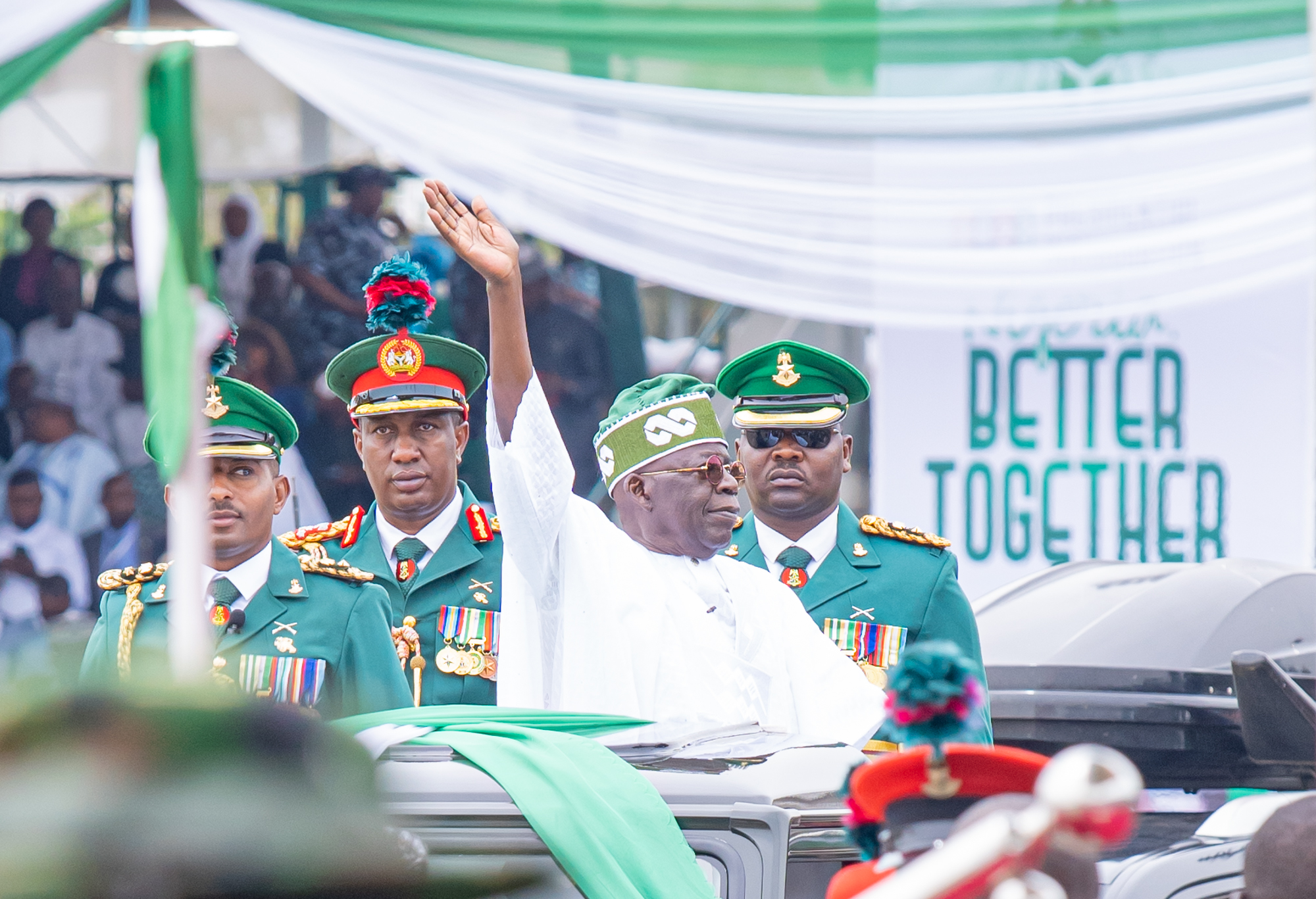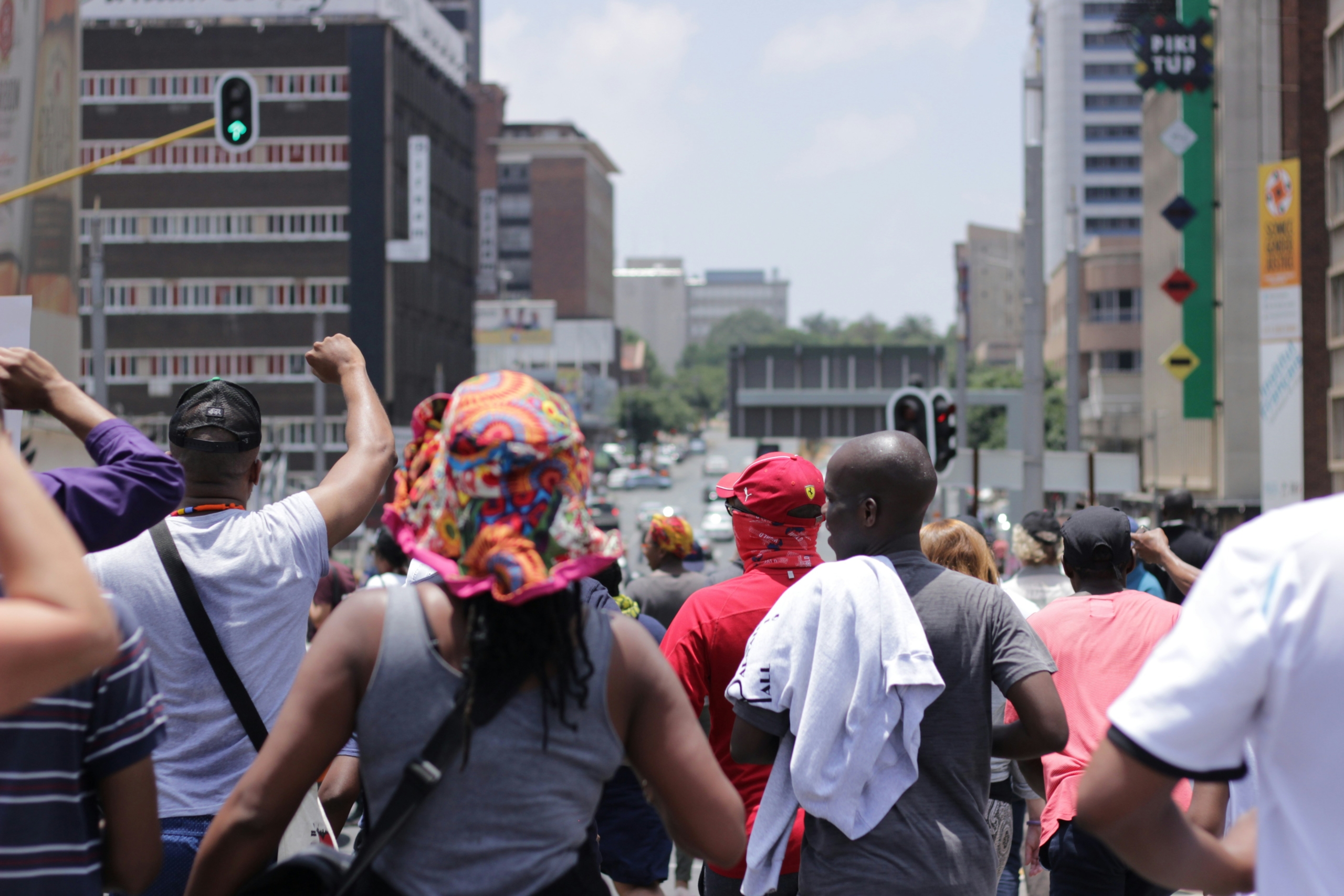We are excited to announce that Brink is now part of Africa Practice. Learn more
Tinubu’s reforms leave Nigerians reeling

Bola Ahmed Tinubu assumed office as president of Nigeria a year ago today. His first months in office saw Tinubu “move fast and break things”, as he sought to overhaul a sclerotic economy hampered by state interference under his predecessor, Muhammadu Buhari. Tinubu used his inauguration speech to abolish an unaffordable fuel subsidy, which underwrote the social contract in Nigeria, and to promise investors that they would be able to repatriate hard-earned profits.
In his first weeks, Tinubu reined in the once powerful Central Bank of Nigeria (CBN), heralding the liberalisation of the foreign exchange market and allowing the naira to find its true value. While such courage was welcomed by global markets and Nigeria’s international partners, citizens are still grappling with the impact of Tinubu’s reformist agenda.
Fuel subsidy
“Fuel subsidy is gone”, arguably the lodestar of Tinubu’s inauguration, put an end, albeit temporary, to a nearly 50-year-old fuel subsidy regime, resulting in pump prices increasing by as much as 230%. However, Tinubu ultimately recognised the socio-political implications of ending the fuel subsidy, which the government has since been quietly reintroduced, without any public admission.
Tinubu may be placing his hopes in the ramp up of the 650,000 barrels per day (bpd) Dangote refinery and the resumption of operations at a 100,000 bpd facility operated by the Nigerian National Petroleum Corporation (NNPC) Limited at Port Harcourt. In May 2024, Aliko Dangote stated that Nigeria will no longer need to import petrol – “not one drop” – once his refinery was fully operational.
However, the Dangote refinery has already stoked controversy. The facility started to supply diesel and aviation fuel to the Nigerian market in January, but with its desulphurisation unit offline, it has struggled to meet local specifications. Dangote is reported to have distributed diesel with sulphur content as high as 800 parts per million (ppm).
The Nigerian Midstream and Downstream Petroleum Regulatory Authority (NMDPRA) had set a deadline of 1 March 2024 for imported diesel to have a sulphur content not exceeding 200 ppm, with further plans to phase down the sulphur content limit to 50 ppm, in line with an earlier ECOWAS resolution. Faced with this situation, we understand that the NMDPRA granted Dangote a waiver, enabling the refinery to supply off-spec diesel to the Nigerian market. This may be a temporary necessity, but the NMDPRA cannot endorse off-spec fuel indefinitely, and it may be less inclined to turn a blind eye once the Port Harcourt facility resumes operations, likely in July.
Naira devaluation and inflation
In June 2023, President Tinubu suspended the then-CBN governor, Godwin Emefiele and commenced the process of eliminating Nigeria’s multiple exchange rates, which had facilitated currency arbitrage. This move was true to Tinubu’s proclamation in his inauguration speech, and he has since consolidated control over the CBN through the appointment of Yemi Cardoso as governor.
The reforms enabled Nigerian banks to bid freely for dollars, which had been in short supply and resulted in international payment delays. While the liberalisation of the foreign exchange market was immediately lauded by international businesses, the abrupt shift from a managed currency regime to a free float has resulted in the Nigerian naira losing roughly 40% of its value to date. Tinubu’s reforms also triggered a period of significant currency volatility, affecting economic stability, while also creating uncertainty for investors.
This overhaul of monetary policy was welcomed by businesses which had been unable to repatriate profits. The CBN had built confidence among Nigerians, which had previously relied on a range of unregulated tools to make overseas payments. However, the process of repatriation has not been hitch-free, as while the central bank has claimed to have cleared historic liabilities, problems persist on a day-to-day basis. On the brightside, Emirates, one of the prominent businesses to exit Nigeria over profit repatriation issues, is set to resume operations in the country from 1 October.
Cost of living and industrial action
Nigerians have had to bear the brunt of these sweeping policy reforms, which have conspired to spur a cost of living crisis. Following the petrol subsidy removal, petrol prices spiralled by over 230% within the first two months, before subsequently settling on a range between NGN 600 and NGN 900. In April, this higher rate – 376% greater than a year earlier – led to queues snaking across cities, as Nigerians sought out filling stations selling cheaper fuel. Such dramatic price hikes have undeniably complicated mobility for ordinary citizens.
Nigerians now spend 50% more on transportation than they did before Tinubu assumed office. Increased costs have also driven up the cost of agricultural production and food distribution. Food inflation rose to 40.5% in April – 15.9 percentage points higher than a year earlier – against a headline inflation rate of 33.69%. The palpable frustration of Nigerians was evidenced in incidents of food trucks being looted in February as they moved food items across the country.
Organised labour has responded to the cost of living crisis. The Nigerian Labour Congress (NLC) and Trade Union Congress (TUC) have staged multiple demonstrations, demanding pay hikes and other initiatives to palliate the high cost of living. The unions threatened a nationwide strike in June, August and October, but, in each case, action was averted following negotiations with the government. The NLC and TUC eventually went on strike in February, and are again threatening industrial action on 31 May. While the government appears to have met some of the unions’ demands, some grievances remain unresolved, such as the negotiation of a new minimum wage despite the expiration of the existing wage.
Fiscal policy
The federal government has limited tools at its disposal to mitigate the impact of the reforms due to its tight fiscal position. President Tinubu inherited a NGN 87 trillion (USD 113 billion) debt stock upon assuming office in May 2023, with Nigeria grappling with a debt service-to-revenue ratio of 80%. The Coordinating Minister of the Economy, Wale Edun, has been eager to signal fiscal discipline to global markets, in a bid to win back wary investors, reiterating that the government is intent on curbing borrowing. However, such austere measures leave the Tinubu administration somewhat powerless to offset the impact of the cost of living crisis with big, bold initiatives designed to ignite economic growth and curb inflation.
The federal government is also not immune to the impact of the exchange rate depreciation. Any positive impact in terms of crude oil revenues are wiped out by the cost of the sustained provision of fuel subsidies, coupled with escalating debt servicing costs. To reduce this impact, the federal government has turned to internal resource generation, increasing taxes in the financial services sector. However, with a slowdown in economic activity, which dropped from 3.4% in Q4 2023 to 2.98% in Q1 2024, these measures are unlikely to erase the losses incurred.
Outlook
As President Tinubu begins his second year in office, his administration will continue to grapple with manifold challenges. The cost of living crisis remains acute, and social malaise is unlikely to recede this year. The government may be able to avert the risk of a general strike this week by negotiating with the unions, but the threat of industrial action will persist as long as wages remain out of step with the cost of living, making short-term disruption an ongoing risk, as unions flex their muscles and demonstrate their commitment to workers’ rights.
Against this backdrop, the state will need to balance the needs of the street with the fiscal rectitude prized by international investors. Tinubu will need to minimise the impact of reforms on marginalised groups, likely via cash transfers. The Federal Ministry of Humanitarian Affairs, under the now-suspended Minister Betha Edu, reported that 3.5 million indigent Nigerians have already received payments of NGN 25,000 each, as of October 2023, out of the 15 million households targeted. While the rollout of cash transfers was suspended along with the minister, President Tinubu now plans to restart the scheme, promising to provide 75 million vulnerable Nigerians across 50 million households with payments of NGN 75,000, without providing clarity on the frequency or timeline.
The IMF anticipates inflation will decline to 26% by the end of the year, but this remains contingent on food and fuel costs coming down. The government is likely to maintain its efforts to promote agricultural production, while hoping that a stronger and more stable naira helps to stabilise import costs. The start of commercial operations at the Dangote and Port Harcourt refineries later this year promises to make Nigeria self-sufficient in petroleum products – at least on paper. However, these facilities will need to generate sustained output in line with the needs of the local market if they are to temper inflationary pressures.
A key litmus test of Tinubu’s political will to bring about a more stable socio-economic climate will be decisions around his core team, with a mini-cabinet reshuffle anticipated in the coming weeks. When assessing the results of ministerial scorecards, Tinubu will have to balance political allegiance with technical competence. But if he holds his nerve, he can use his second year to double-down on key initiatives and remove inefficiencies, thereby setting Nigeria on a path towards capable and committed government.
Photo credit: Charles Omoruyi
Proud to be BCorp. We are part of the global movement for an inclusive, equitable, and regenerative economic system. Learn more


